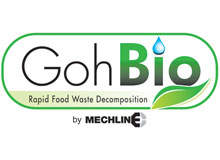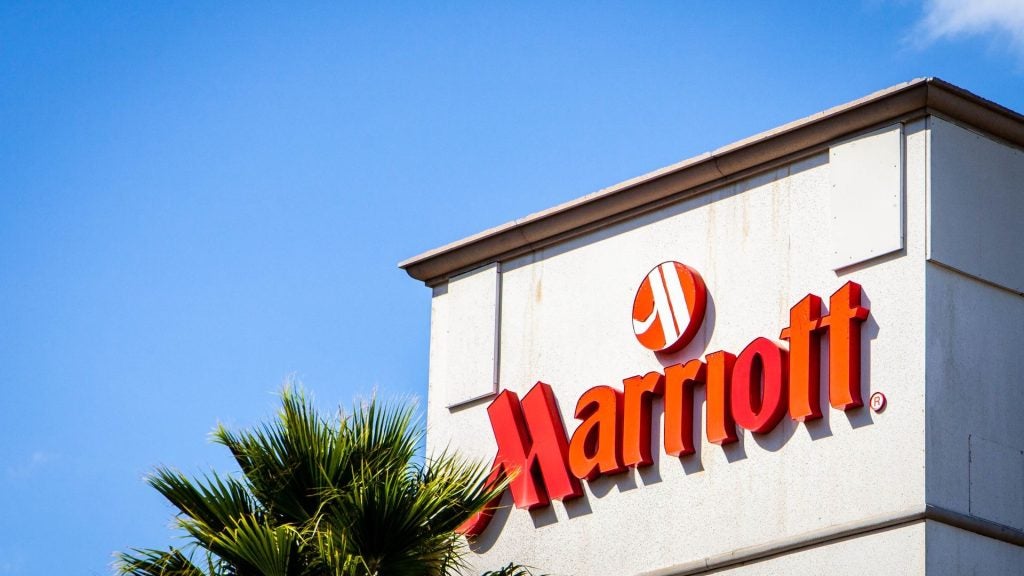
Hotels with large catering operations create an enormous amount of organic waste on a daily basis. According to the UK Government, food waste accounts for 17m tons of the UK’s total waste stream, with 7m tons contributed by large scale food manufacturers. There are many options available to hotel operators when it comes to dealing with waste, although all have their drawbacks.
Standard waste collection is efficient but environmentally unsustainable, filling landfill sites and increasing a hotel’s carbon footprint through regular vehicle pick-ups. Waste disposal units reduce the need for using landfill sites by sending pulped food down the drains, but can cause expensive and damaging blockages, especially when dealing with fats, oils and grease. On-site composting has been touted as a sustainable alternative, although it can be quite intensive in terms of both time and space required.
GohBio hits the UK
Originally developed by US company Bio Hitech and now being marketed in the UK and Europe by Mechline Developments, the GohBio is being offered as a comprehensive eco-friendly waste disposal system for hotels and other locations producing a high volume of organic food waste.
The machine can break down food waste that is poured into it by releasing micro-organisms (along with water) to convert the food into a non-toxic ‘grey water’, which can be safely drained away. The process takes around 24 hours at full capacity. The GohBio has already been on sale in the US since 2008 and has been installed at hotels including the Hilton and the Maritime in New York, as well as the Four Seasons in Boston.
See Also:
Lee Shelton, sales and projects director at Procaterserv, one of the distributors working with Mechline to bring the GohBio to the UK, says that the product offers the most efficient sustainable waste disposal proposition on the market, from both a waste management and an emissions perspective.
How well do you really know your competitors?
Access the most comprehensive Company Profiles on the market, powered by GlobalData. Save hours of research. Gain competitive edge.

Thank you!
Your download email will arrive shortly
Not ready to buy yet? Download a free sample
We are confident about the unique quality of our Company Profiles. However, we want you to make the most beneficial decision for your business, so we offer a free sample that you can download by submitting the below form
By GlobalData"[The GohBio] offers a renewable solution, in that food waste is 85% water, so the micro-organisms devour the food and release 85% of that as water. If you’ve got 100kg of food, which would normally go to landfill or an RDF [refuse-derived fuel] plant to be burnt for energy, that water would be lost. But this water is released back into the eco-system or it could be recycled, it could be put back into a filtration tank for use in effluent or jet-washing, or indeed with careful filtration and post-processing, it could resupply the machine to make it more self-sufficient."
"There are a lot of companies that are also trying to get a carbon neutral footprint," Shelton continues.
"To have a carbon neutral footprint in a business you have to potentially reduce traffic into that business. The GohBio eliminates the food waste at source, not just at site. Potentially you can just scrape the food straight into the machine, so there are no transport costs. It’s dealt with on site so there’s no vermin, there are no rats, there’s no cluttering. It’s just dealt with and then you get a renewable in your grey water."
As well as pumping water back into the eco-system, the GohBio requires considerably less water to operate than traditional waste disposal units.
GohBio’s operational benefits
To sell the GohBio to the mainstream hospitality market (Shelton states that his company is performing case studies for the product with both the Hilton Group and InterContinental Hotel Group in the UK), Procaterserv will have to convince companies that the machine is conducive to financial and efficiency savings as well as environmental benefits.
To this end, the company is planning to offer the GohBio as a simple purchase as well as on an operating lease to make it more initially affordable.
According to Shelton, the cost of the system (which is available in four sizes, with capacities of 180-680kg per day) can be rapidly offset by savings on existing transport and landfill costs. "We’ve done studies with various large hotel groups and we think the payback can be less than two years, and in some instances, between 18 and 22 months," he says.
"That was on capital. If we offer it on an operating lease, whereby there’s maintenance included, the enzymes, the woodchips and the service, we can look at an operating lease on a three or five-year package which is exceptionally comfortable against what they are currently paying for landfill."
Possibly the GohBio benefit that will go over best with catering staff working in busy kitchens is the simplicity of maintaining hygiene once bags of rotting food waste are taken out of the equation. Without the need for food refuse pickups, there is no need to store piles of rubbish sacks while waiting for landfill transportation, which in some areas could take up to a week to arrive. "Especially if it’s category 3-type waste, raw meat and fish, it’s going to have all sorts of environmental impacts, especially in the summer" says Shelton. "And now that [some UK] local councils are looking at bi-weekly pick-ups, you’re going to end up with flies and maggots – it just doesn’t bear thinking about."
A limitation of the gentler micro-organism approach to dealing with waste is that some foodstuffs take longer than usual to break down into grey water. Troublesome waste includes uncooked dough products (which Shelton says must be cooked off before placing into the machine), as well as more fibrous materials like pineapple skins and corn husks. Meat bones and fruit stones cannot be broken down at all by the GohBio’s enzymes, but can be removed later. "You’d put the bones in and they’d come out hollow. The enzymes will eat all the marrow out of the middle, they’ll strip the bones clean, and in the morning you can either take them out or let them rattle around and take them out in a larger quantity," says Shelton.
As a relatively new product that has not yet reached the consciousness of the market, the GohBio is still somewhat of an unknown quantity.
However, the concept could have a huge and positive effect on the way that large-scale waste management operates in the commercial sector. As a waste disposal option that appears attractive from bothenvironmental and financial viewpoints, the GohBio may appeal to companies’ heads as well as their hearts.







